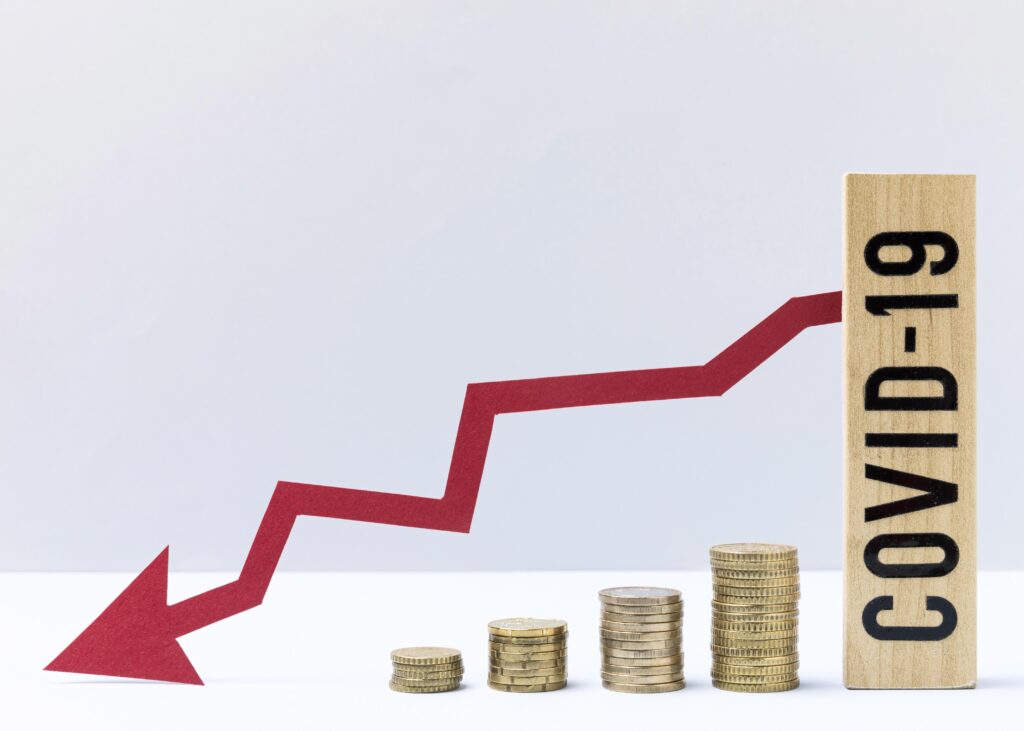
Economic crisis is China is farther from over as the country’s consumer price index plunged 0.8 per cent year on year last month, the fastest drop witnessed in 15 years as per China’s National Bureau of Statistics (NBS). Since July last year, Beijing’s consumer price has dropped 0.3 per cent for the first time in two years. Increasingly, concerns are being raised about China slipping into deflation, which only seems to get more deeper this year as the world’s second largest economy’s Consumer Price Index (CPI) witnessed its sharpest drop, especially in food prices and the Producer Price Index (PPI), seen an annual drop of 2.5 per cent.
While the global economy has been going through inflation, the situation in Beijing is just the opposite, that is, there is a drop in market prices as the consumption demand is declining. Many experts believe that China’s prolonged restrictions as part of its zero-Covid policy is believed to be the main reason behind China’s inability of its post-pandemic economic recovery, leading the country through deflation. The domestic concerns, such as, youth unemployment and slump in property market share further aggravated Beijing’s economic crisis. The Asian Giant has barely managed to meet its target of economic growth of five per cent last year, the lowest in decades, reaching 5.2 per cent and setting the same target for this year.
Whilst some experts may highlight that falling prices is good, however, the fact is, deflation, if it continues, can have long-term economic impact. If people continue to delay their purchase expecting the prices of products to drop further, then the economy is under risk of facing recession. Considering that Beijing is world’s second largest economy and is recognised to be world’s manufacturing hub for being top supplier of goods and largest consumer of a number of commodities, China’s deflation can have major impact in the global economy, especially for Asia and Africa. Pertinently, these two regions are China’s biggest export market, with whom both have the largest trade relations. Therefore, China’s deflation risks affecting the overall global supply of demand. This year, Beijing’s exports witnessed a dip for the first time since 2016, reflecting the country’s inability to overcome its deflationary pressures. Because of decline in the consumer demand within the country, Chinese imports, too, declined by 5.5 per cent as compared to last year.

China’s foreign direct investment (FDI), too, has witnessed a slump for the first since 2012, another impact of its deflation. Asian economies, heavily reliant on Chinese FDI, especially in infrastructure projects, could face a reduction in investment flows if deflation continues to be long-term. Southeast Asian countries have already began to face the woes of China’s economic slowdown since last year in its trade and investment, with Chinese trade with these countries witnessing a decline. Japan was the first country to report a drop of 0.3 per cent in its exports for the first time in two years with exports to China, Japan’s biggest trading partner, witnessing a sharp fall of 13.4 per cent, following Beijing’s cut back on the purchases of cars and chips. Around the same time, South Korea and Thailand’s central bankers cited China’s weak economic recovery as the cause for their growth downgrades. The value of shipments from Asia and Africa were also lower around this time, as compared to the previous year.
Their imports value, moreover, slumped more than 14 per cent in the first seven months of last year, indicating China’s deflation being the worst hit for these regions. If deflation persists, the value of shipments to China would face another sharp dip as seen in case of fossil fuels. The depreciation of Chinese currency, yuan, further risks its spill over effect on other countries in Asia. Asian economies, which provides supply chains for China, is believed to be also face a slowdown and loss of jobs as a long-term impact of Chinese deflation.

While it is too early to predict how China is going to resolve its economic crisis, the global economic developments we are currently witnessing clearly tells that China’s deflation will not be a Chinese problem just, but will have ripple effects, especially in its neighbouring Asian countries. Therefore, the need of the hour for these countries is to diversify their sources, to mitigate Chinese ‘debt trap’ or worst, face economic slowdown or recession due to over-reliance on China.





